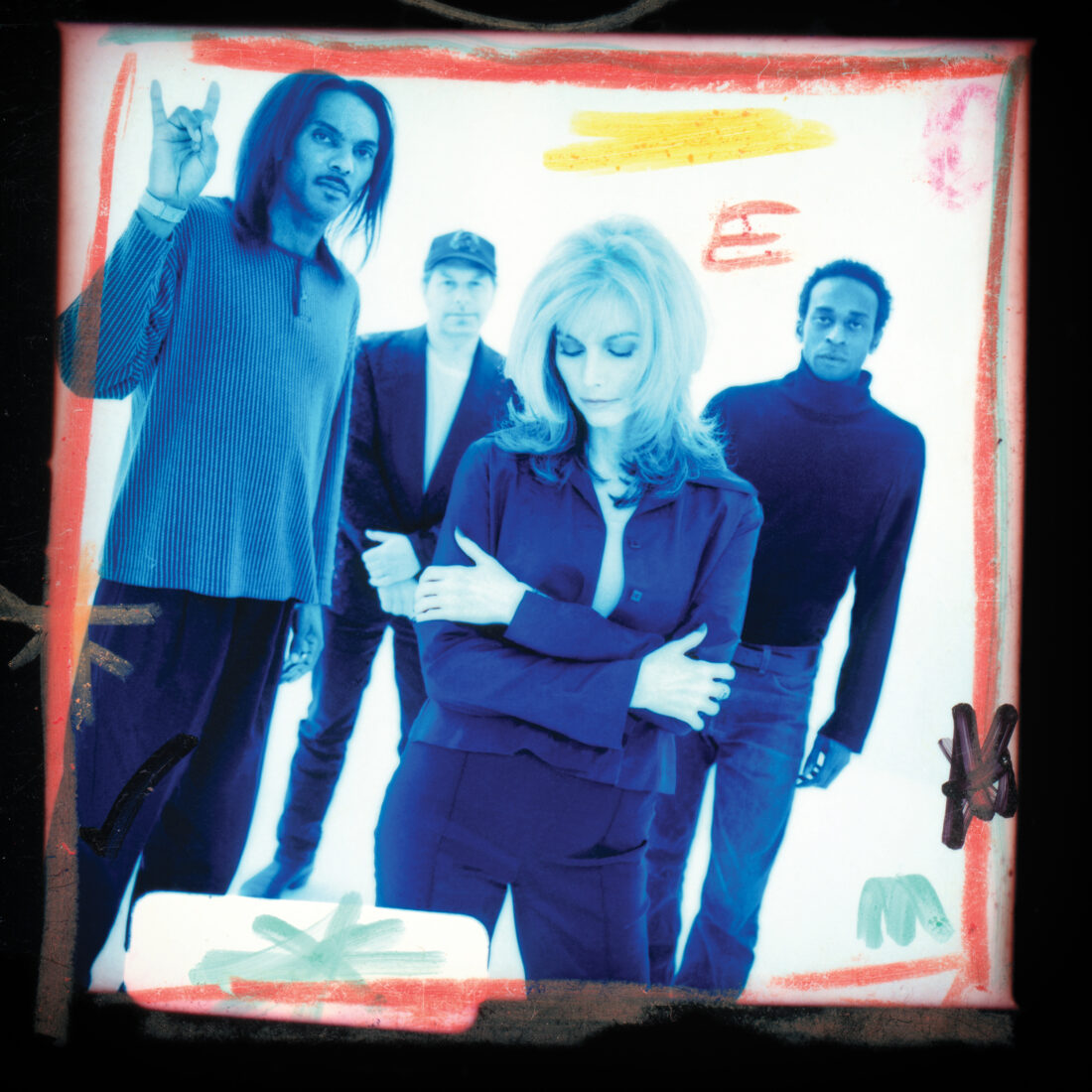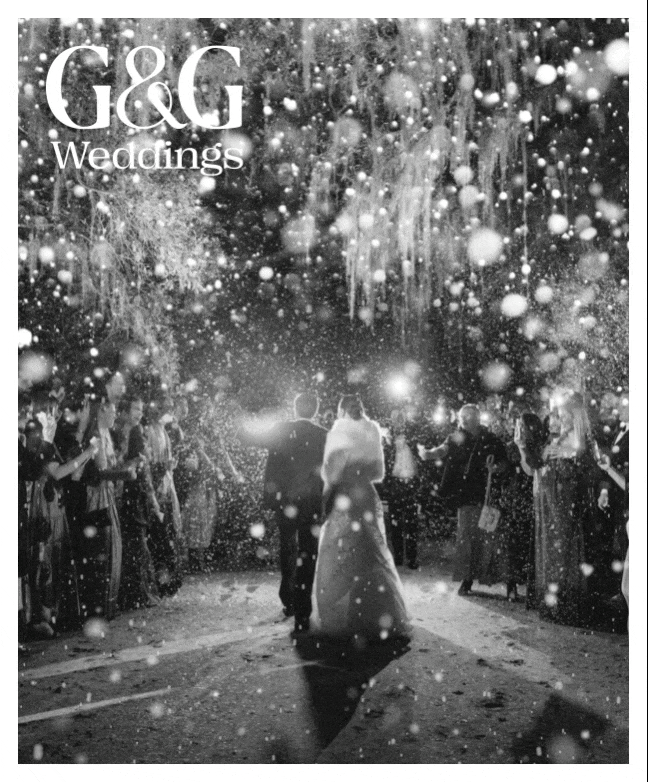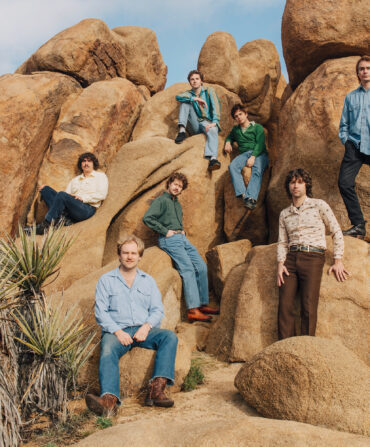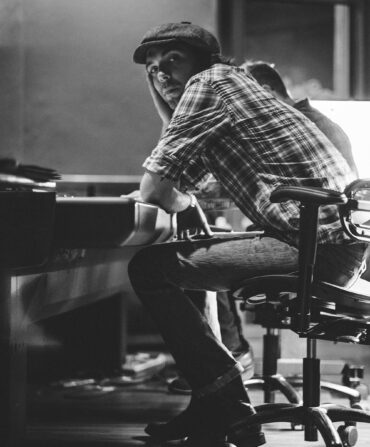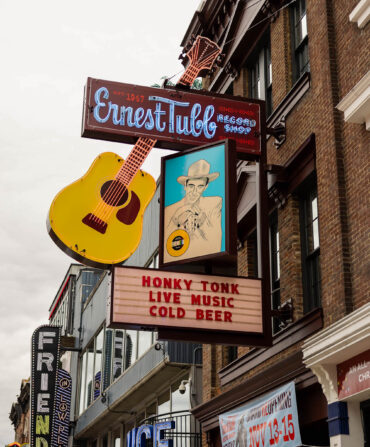When Emmylou Harris went out on tour in 1996, the then forty-nine-year-old singer-songwriter was charting new territory. She had a new band—a stripped-down trio composed of frequent collaborator Buddy Miller on guitar and New Orleans players Daryl Johnson on bass and Brady Blade on drums. She was playing songs from her breakout album Wrecking Ball, a release that garnered a Grammy for Best Contemporary Folk Recording and represented a significant evolution from her previous work. And she was prepared to introduce fans to something they hadn’t heard before.
So Miller recommended they record the shows. The live album that would follow—1998’s Spyboy, so named for the backing band on the tour—would offer a glimpse into this pivotal time in her career, sharing a psych-tinged take on songs that have continued to evolve with Harris’s live show ever since.
“A good song will travel with you over your career, over your life, over whatever changes you’re going through,” Harris explains. “Those are the songs that I end up performing in my shows.”
Next month, these recordings will find new life on Spyboy’s nineteen-track reissue. Out November 6 via New West Records, the album will feature five previously unreleased recordings: Tom Petty and the Heartbreakers’ “A Thing About You,” Bob Dylan’s “Every Grain of Sand,” Bill Monroe’s “Get Up John,” Lucinda Williams’s “Sweet Old World,” and “All I Left Behind,” a co-write between Harris and the folk rock duo Kate & Anna McGarrigle.
The album, particularly with its new tracks, is a reminder of Harris’s unique talent for interpreting songs in new and exciting ways, whether she’s revisiting one of her own or tackling a cover. It’s a thread she continues to pull today. “As you grow older—the more work you do and the more people you work with—your music is going to change. You just have to hope that you keep getting inspired,” she says. “And I’ve been very lucky.”
Below, stream a premiere of “Where Will I Be,” a song from the rereleased Spyboy—then hear more from Emmylou on the season of life and the body of work represented on this album.
Spyboy documents your time touring Wrecking Ball, a breakout album for you—and a departure from what you’d done before. Looking back, how did this tour influence what you did next?
One big thing that came out of Spyboy was I realized that I did need to inject something new as an artist into my work. I make my living by making records and going out on the road. And I wasn’t going to become a different singer. The only thing I had to offer at that point was to go back into the writing room—which I did kicking and screaming, as someone who’d been satisfied as an interpreter of songs for most of my life. But it was almost like I had to offer something new, a sacrifice to the creative gods as an artist. And to do that, I felt that I had to write most of the material for my next record: On Red Dirt Girl, all except for one song were written by me.
Did your time growing up in the South impact your music in any particular way?
We would make trips to visit my mother’s family in Birmingham or go visit my father’s family up in Maryland. But my father was in the Marine Corps, so even though I grew up in the South, from the time I was about six, it was on marine bases—Camp Lejeune and Quantico and Cherry Point—and there were people from all over in school with me. It gave me a sort of tabula rasa, a complete blank slate for when I discovered folk music, and then later on, country music. I was just open to everything: If it affected me, if it moved me, I was open to it.
One of the bonus songs on this re-issue is “Get Up John,” written by Bill Monroe, which was such a departure from the sound of this tour and this band. What was significant about including a bluegrass song?
I’m always searching for a good up-tempo song. I had recorded “Get Up John” for my album with my bluegrass band, the Nash Ramblers, on At the Ryman—with the wonderful, marvelous Sam Bush on mandolin—as our tip of the hat to the great Monroe. But it was such a good song, and a good song will thrive in the hands of different instruments played by excellent musicians. So [for Spyboy] Buddy on electric guitar created the body, and I had a New Orleans rhythm on it. It remains a very important song in the sets that I do now, with the wonderful Eamon McLoughlin on mandolin and my Red Dirt Boys rhythm section.
You’re a huge dog lover—there was a time when you’d bring your dog on the road with you. What was special about that?
I love my human company—my band and crew were all great, and we’ve become great friends—but there’s something about the company of dogs in the solitude of those hours you spend on the road. They get you out of the hotel room; when you take the time to get them out, you get to see where you actually are instead of just the backstage of the show where you’re playing.
And now you have a dog rescue.
My first dog that I traveled with, Bonaparte, traveled with me for ten years. Not every dog is a good road dog—a bus dog, we would call it—but he was terrific. After he passed away, I started my rescue, Bonaparte’s Retreat, in his memory. We pull a lot of the ones that get left behind: the ones that are older, the ones that have medical issues, bigger dogs. It’s a small rescue. But when I see one of these dogs that might not have made it out of the shelter find what we call a “forever home,” there’s no way I can even express the joy that gives me.
Spyboy is a snapshot of a very specific time in your career. Is there anything that would surprise the Emmylou of back then about your life now?
That I’m still doing it now, all these many years later. I always felt that the album Wrecking Ball came at a time when I needed to make some kind of change; in order to progress, you have to be excited about what you’re doing, and that record with its different rhythms and different sounds translated excitement into the live show and then, in some ways, carried me over to where I am now. I still love going out and singing live for people, and fortunately I have a body of work of songs that still resonate for me. I’m just a working girl, and I still love my work.


